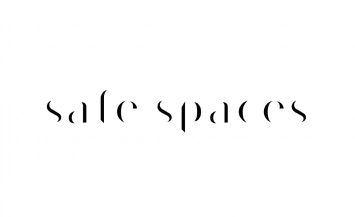SafeSpaces

"Places without SafeSpaces seem miserable places, indeed."
I've recently seen a lot of commentary complaining about SafeSpaces. The complainants seem to subscribe to the What Doesn't Kill You Makes You Stronger school of social advancement, as if an absence of safety toughens people, encourages bravery, and yields straighter backbones. I'm of the opposite ilk. In my experience, the absence of safety brings out some of the worst in people. It might shut them down or set them off, neither state terribly conducive to full engagement. If I've got one eye employed to keep a watch out for someone sneaking up to get me from behind, I can't hardly keep both eyes peering ahead. For me, SafeSpaces seem fundamental to any endeavor. ©2018 by David A. Schmaltz - all rights reserved
Not that any of us should avoid at least preemptory preparations for the odd worst case scenario, but worst case scenarios so rarely occur that it seems pointless to over-prepare for them. Yes, they might well come but they're most likely to arrive in ways so different from what one prepared for as to render the preparation moot at best, and more probably as an encumbrance to effectively responding. Most of us seem to just get paranoid when immersed in what we perceive as an unsafe space. More wary and also much less present. The screamers who show up to protest SafeSpaces seem to make almost everyone there disappear.
I have lived at times on the blunting edge of out there, absent any safety net, unable to spot a safe port of call; all in, as the card sharps say. I found these experiences to be oddly un-invigorating. I understood from my vast perusal of The Hardy Boys catalogue, that I was supposed to feel liberated, but I found that brand of freedom overall confining. I felt that I needed to hold much of myself in reserve and to preserve much of the remaining, lest I lose what little I had left to some surprise assault. I psychically curled up into something not entirely unlike a fetal position, mostly frozen on the otherwise promising parapet. I felt an easy target there.
If I hope to accomplish real progress, I understand that I must somehow maintain SafeSpaces around my effort. I can certainly deceive myself into believing that I'm safe enough to move forward, a strategy that works much better for me than continual wariness. Of course I'm a fool to even believe in SafeSpaces, but no more or less foolish than I would have to be to believe in the necessary absence of them. When I was teaching workshops, The Muse and I expended most of our effort into creating a safe space within which participants might actually absorb something useful. In some companies, ours was a true fool's mission, since the whole proposition behind the founding of the organization seemed to be the manufacture and distribution of just as much paranoia as could possibly be mustered. Places without SafeSpaces seem miserable places, indeed.


